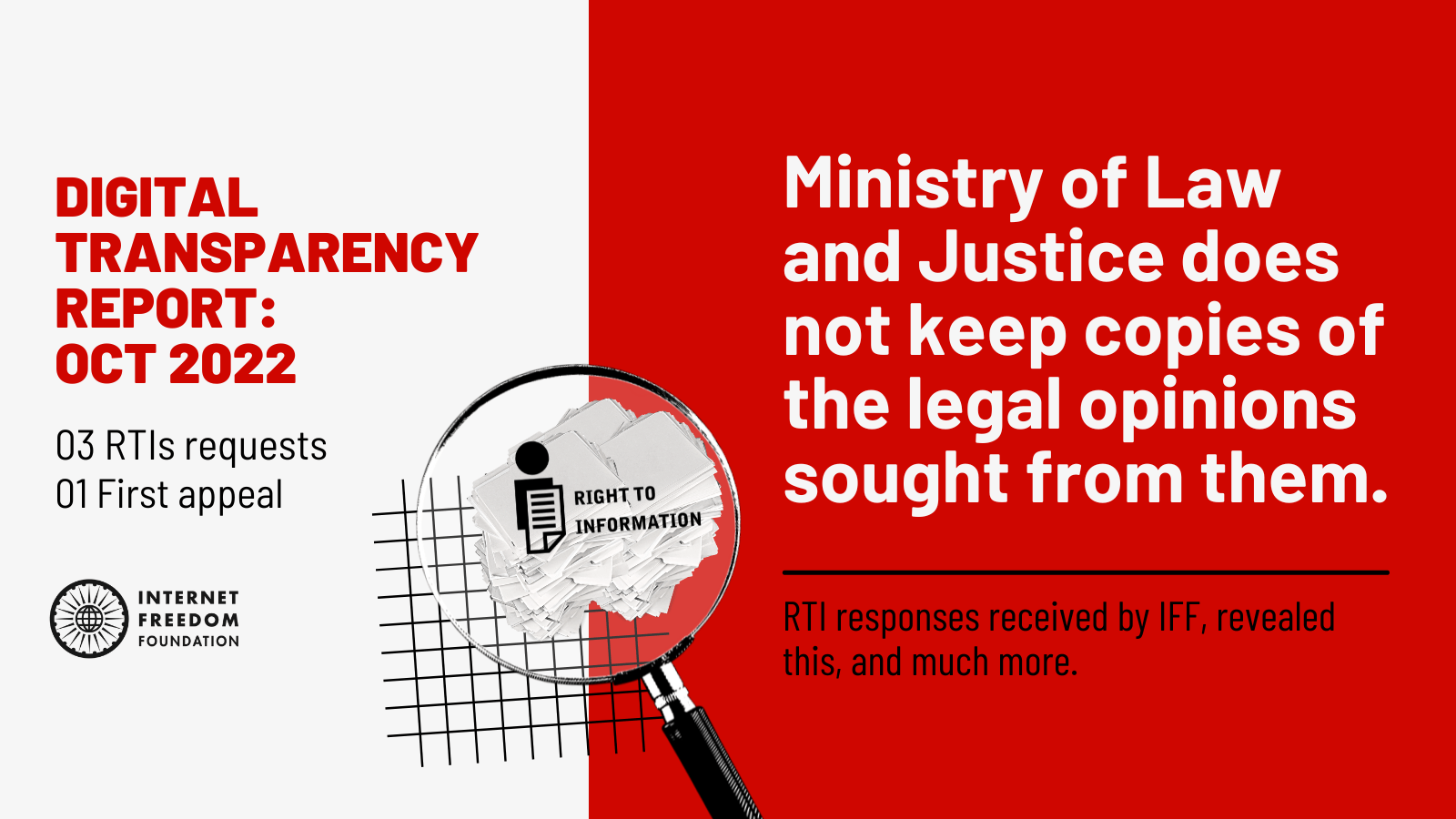
tl;dr
For the month of October 2022, IFF has filed 03 Right to Information (“RTI”) applications, 01 first appeal. In significant responses, the Ministry of Law and Justice told us that they do not keep a copy of the legal opinions sought by Ministries and Departments; and DoT shared the order constituting the committee which drafted the draft Indian Telecommunication Bill, 2022.
Why should you care?
The RTI Act was enacted to promote transparency and accountability in the working of every public authority by ensuring that citizens have access to information under the control of public authorities. Facilitating such access is necessary to ensure that democratic processes are not subverted by public authorities acting under private interests. Where transparency is not upheld as a value of public decision-making, citizens are at a disadvantage when it comes to keeping a check on abuse of power by the public authorities.
As we have discovered previously through responses received on our Right to Information applications, several times various government processes and programs continue with little or no transparency. This happens despite the mandate in the RTI Act, 2005 to publish and disclose information to citizens proactively.
The RTI Act is thus one of the most important tools at the disposal of the public to engage with, and demand transparency and accountability from, the Government. We use the Act to extract information about various ongoing policies and projects that the Government launches.
Data Protection and Privacy
One of our key areas of work is ensuring that public authorities respect data privacy and engage in practices that will protect the right to privacy. We filed a first appeal with the Standardisation Testing and Quality Certification (STQC) Directorate under the Ministry of Electronics and Information Technology; on their non-response to our RTI application seeking information on use of Facial Recognition Technology by them under IFF’s Project Panoptic.
Under the project, we routinely file RTI applications with various public authorities after we come across news reports that they are developing or using facial recognition technology (FRT). We also filed an RTI with Delhi Public Works Department on CCTVs and FRT in Delhi prisons.
For more information on the use of facial recognition technology and how it increases mass surveillance, visit IFF’s Project Panoptic.
We also filed RTI applications with
- With Department of Telecommunications on the need for a new legal framework governing Telecommunication in India.
- With Ministry of Civil Aviation on the policies governing the DigiYatra Ecosystem.
Significant responses received:
- In response to our application on legal opinions sought from them, the Ministry of Law and Justice responded that they do not keep a copy of the legal opinions sought by Ministries and Departments.
- In a significant response, DoT shared with us a copy of the order constituting the committee which drafted the draft Indian Telecommunication Bill, 2022.
Help us help you
In case you want us to file an RTI application on an issue which includes any active or proposed program, scheme or initiative of the government impacting the digital rights of citizens, you can fill out this blocksurvey form and we shall then file an RTI application with the concerned authorities. Alternatively, you can also write to us [email protected].
